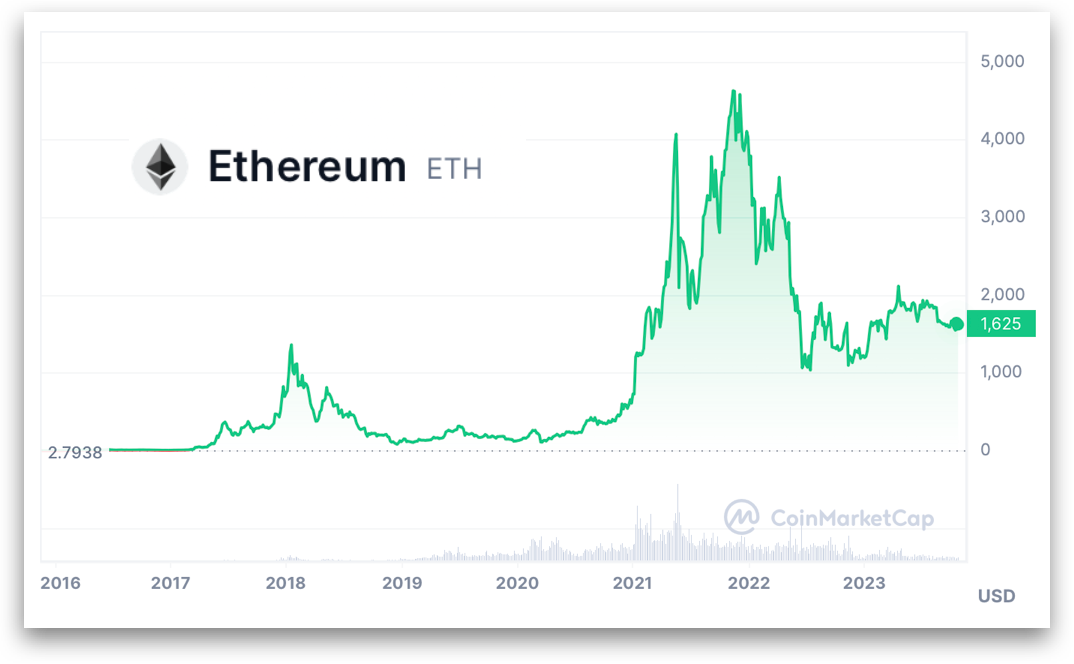The next Zuck, Sequoia investigated, What Vitalik thinks, Science and God, Reddit's AI challenge, Elon's new truck, shrinking China, and more insider stuff...
Ethereum’s Vitalik worries about stagnating crypto and AI taking the show away
Vitalik Buterin, the 29-year-old Canadian-Russian developer who cofounded Ethereum, worries if crypto stagnates, so will the movement towards privacy and open internet infrastructure, which might ‘become lost causes.’
Vitalik and the Web3 movement he represents have always been about dramatically decentralizing power away from the institutions we no longer trust and back to the individual. The new generation, in particular, does not trust central powers and despises middlemen fees. Vitalik is the Godfather.

For Vitalik, AI represents both the greatest threat and greatest opportunity for the dream. He worries that instead of the decentralized ideals that have inspired crypto, ‘the big techno-political questions of the 21st century will be decided by whatever happens in AI over the next decade.’
An example of a dApp is the non-profit Voting Block USA initiative application. It demonstrates how voters can ID themselves, register, and vote on a tamper-proof decentralized platform where no human or central agency can access your voting records.
On the upside, Vitalik also has faith that the Ethereum community can provide a potential solution to address AI-related challenges, such as digital impersonation. Vitalik also points to decentralized social media platforms built using Ethereum sign-in options like Farcaster and Lens Protocol as positive trends. ‘I do hope that Farcaster and Lens become as big as Meta one day!’ he says.
We love that Vitalik is moving scared and fast because we know he can do it. The reality, which he hints at, is AI = even smarter contracts, so we don’t see nothin’ slowing this train.
We are supremely confident that the ‘Take Back the Power’ movement will prevail. But it will be because crypto leaders like Vitalik, Brian Armstrong at Coinbase, and Liz Stark at Lightning Labs are doing something about it.
Our view is the Web3 stars are aligning, and we are gearing up for a combination dApp boom (already happening on Wall Street), tokenized real-world assets including IP boom, and a more studied yet successful utility Crypto 2.0 boom—all increasingly powered by AI-driven smart contracts.
The losers will be the cloud computing-based apps, especially those like Google and Facebook, whose businesses depend entirely on selling our personal data.
Science and God
There are two popular clichés bantered around in the modern world. “I am not religious; I am spiritual.” The other is, “I don’t believe in God; I believe in science.” We will reconstruct the former catchphrase at a later date. The latter retort is based upon the presumption that somehow if we knew all of science, we could disprove there is a God.

Interestingly, scientists are trending to more belief in the supernatural—that is, a state above nature that can not be broken down into protons, neutrons, and electrons and is created by an intelligent God, universal spirit, or higher power. Science, of course, can neither prove nor disprove the supernatural and never will because believing in a Master Creator is a leap of faith.
Even if a Creator God turned the sky all over the world into one big screen, spoke to us, provided us with dozens of forecasts of imminent events, and then came back later after all her predictions came true, people still would not believe. Many believe today that we are actually not living in an organic Universe but are instead living in some Matrix-like simulated reality. So to these fine folks, the ‘God’ that filled the sky would merely be the creatures playing the video game that represents our reality, and we are just the avatars in the game. According to the once venerable Scientific America, the ‘chances are about 50–50 we all dwell inside someone else’s computer.’
For the people who believe this stuff, seemingly including Elon, we hope it answers all your questions and it’s working for you. We are not there yet.
Speaking of a leap of faith, perhaps the young scientists have come to the conclusion that the odds that our planet was made life-friendly by accident are so great that it is easier to believe in an intelligent Creator with a purpose. The long-time president of Gonzaga University, Fr Robert Spitzer, who has written three books and over 30 papers on the subject, has observed that while our Universe is decidedly friendly to life—when you analyze the constants and initial conditions of our Universe, our creation can only be explained as otherworldly.
“The odds of our Universe being able to sustain life by pure chance are in the order of 10 to the 10 to the 125th power (10^10^125)—just two exponents above the Penrose number. In other words, it is the same odds as a monkey typing the entire corpse of Shakespeare, Milton, Spencer, and Elliot by random tapping of the keys in a single try. The only two explanations that can explain this are one, there exists an infinite and eternal multiverse that lowers these odds, or two, our life-affirming Universe was created by an intelligent and transcendent power.”
—Fr Robert Spitzer, Magis Center of Reason and Faith, President of Gonzaga University (1998 to 2009).

"The local laws of physics and chemistry can differ from one pocket universe to another, which together would form a multiverse. But I have never been a fan of the Multiverse. If the scale of different universes in the multiverse is large or infinite, the theory can't be tested."
—Stephen Hawking, Journal of High Energy Physics in 2018
Even the famed atheist scientist Stephen Hawking, in his last academic paper in the Journal of High Energy Physics in 2018, with his partner, Belgian physicist Thomas Hertog, debunked the infinite Multiverse debate because it does not jibe with the empirical observational basis of physics. That is, you can only get a universe like ours with our Quantum Theory and our Relativity Theory at play. And even if there was a Multiverse, it could only create a Universe like ours, and each Universe would require a beginning, and the number of them would not be infinite.
Listen to Father Spitzer's entire 38-minute lecture for further background.
So maybe it is the seeming collapse of the Multiverse theory that is steering young scientists to supernatural faith. While we let this all settle in—and hopefully, some of you will add your two cents on this scientific trend below in the comments—May the Gamers, or whoever is controlling us up there, pity us. We are merely pilgrims on the road to find out, and we are just trying to turn the world around one more time. Amen.
Did you know?
(Overheard on the streets of the global Silicon Valley. Got any hot insider tips? Email us editor@cryptoniteventures.com)
The Billionaire Boys Club
The Bitcoin billionaire boys battle between Barry Silbert of DCG vs. Gemini founders Tyler and Cameron Winklevoss just got a new mutual enemy in New York Attorney General Letitia James, who is suing both their companies for defrauding customers, including 230,000 people with $1B stuck in accounts.
The US has the most crypto billionaires, including Barry Silbert and the Winklevoss twins (noted above), Ethereum cofounder Chris Larsen, hedge fund manager Michael Novogratz, and Coinbase founder & CEO Brian Armstrong. The US is also home to two of the biggest exchanges— Coinbase and Kraken—cementing the US’s position as the richest crypto country in the world.

Peter Thiel, the multi-billionaire cofounder of Paypal, Founder’s Fund, and Palantir, has an impressive professional network that all started when he founded the still-kicking conservative student newspaper, Stanford Review, 35 years ago. Peter and two other SR alums were early at Paypal, and then the network effects began. ‘We didn’t envision it becoming this incredible tech Silicon Valley network decades later when we started back in 1987,’ Mr. Thiel told Fortune.
Social Networking
Elon announced X will offer two paid member tiers: $ 1 per year to post and interact with posts and a higher-priced membership to opt out of ads. Elon has been hinting at this move as it makes it more difficult to create spam and bot networks. X is also removing interaction buttons and metrics other than view count from posts in the main timeline.
The Washington Post reported Reddit might cut off Google and force users to log in directly to Reddit if they can cut a deal with a gen AI company to pay for its data. In the backdrop, more than 535 news organizations have opted to block their content from AI companies like OpenAI.
We have seen no evidence that Zuck has ‘grown up at 40’ and will magically ‘upend’ his one-trick-pony Facebook to great heights with his newfound ‘staggering confidence.’ When the authors at Forbes referred to Zuck’s ‘Bill Gates moment,’ we knew they didn’t know much about what they were talking about.
Bill Gates’s moment’ was being late to the Internet game after obsessing for years about putting Windows in your new two-way cable box that never happened. We know, he told us all about in 1993. By 2011, Apple had skyrocketed past Microsoft as the most valuable company in the world, where they still stand today.
Bill Gates’s love affair with the ‘Interactive TV’ that never happened
Bill Gates, Chairman & CEO of Microsoft, talks exclusively with Red Herring editor-in-chief Tony Perkins about his company's plans to be a major player in building the information highway. September 1993.
Who is the Zuck of today?
“Mark has three public personas. There’s The Social Network Mark (the 2010 movie that portrayed the Facebook founder as an arrogant, duplicitous genius), then the ‘Cambridge Analytica or evil Mark (referring to the company’s data harvesting scandal), and now there’s the Mark of today. He is a lot more authentic in his public persona. He’s learned a lot over these past few years, and he has a new fire in the belly. He’s realized he needs to act responsibly because he’s got this enormous platform. But there’s still some of the old Mark, where he is betting on things even though everyone tells him ‘this is never gonna work.’” (E.g., Zuck’s $100B bet on the fledgling metaverse.)
—Spotify founder and friend of Zuck, Daniel Ek
VC Whispers
Sequoia US and HongShan, the rebranded arm of Sequoia China, are both under investigation by the US House Select Committee on China over their VC investments in Chinese companies focused on AI, quantum computing, and semiconductors.
Are the VCs funding the noose with which China will hang us?
Sequoia has stakes in Chinese drone maker DJI and TikTok’s owner, Bytedance, and AI company 4Paradigm; all of which are constitutionally required to share data with the People's Liberation Army (PLA).
AI Tracker
Based on Microsoft research, 65% of Gen Z employees say they don’t currently have the right skills to meet the demands of the AI era. A notable difference when compared to the 50% response we got from baby boomers. The key is to see AI as your newest direct report.
Applied Digital (APLD) is following the new trend of Bitcoin mining data centers expanding into serving the high-performance needs of the booming AI industry. Another miner, Iris Energy, is investing in generative AI computing and has ordered 250 NVIDIA H-100 GPUs.
On Hollywood
Bob Iger revealed ESPN brings more to the incredibly shrinking Disney's bottom line than its entire entertainment business—but even the US sports broadcaster’s profits fell from $2.1B in the first 9 months of 2023, vs. $1.9B in the same period in 2022.
Bandcamp, the indie music streaming platform, laid off roughly half its staff after its second change of ownership in as many years. Indie artists have sold $193M in downloads on Bandcamp, which has served as a refuge from the brutal economics and promotional machinery of streaming.

In 2022, the Recording Industry Association of America says streaming services accounted for 84% of recorded music revenues, with physical media accounting for 11% and 3% (and falling) for digital downloads. This math confirms that streaming is cheaper than buying music for listeners.
Sweden-based Spotify has won the streaming music for now with nearly a half-billion members—200B of whom pay, yet they still lost $455M in 2022. To bolster revenues, Spotify launched a ‘Merch Hub’ with new profile pages through which artists can sell live tickets and promote merchandise.
The Science of Life
Scientists are now using AI to leverage and train vast databases of medical records of cancer patients to provide lifespan predictions with chilling accuracy. Dr Sarah Holmes, chief medical officer at Marie Curie, says, “Greater certainty around prognosis, when someone has a terminal illness, will no doubt bring comfort to some people, but others we treat would rather not know.’
Follow the Crypto
Washington owns more than $5B worth of seized bitcoin and has been reluctant to part with it. At least the US government does one thing right.
In what Ripple called a 'stunning capitulation’ and ‘a surrender by the SEC,’ the SEC dismissed a lawsuit against Ripple execs Brad Garlinghouse and Chris Larsen for allegedly violating securities laws by offering and distributing the cryptocurrency XRP. SEC is still pursuing Ripple over the securities violations.
Pantera Capital pumped $22M into SynFutures, a DeFi derivatives exchange focused on perpetual futures used in cryptocurrency and commodities trading. Perpetual futures continue indefinitely and can be traded with leverage, letting traders control a larger position.
Into the Metaverse

Until 31 December in London, Gucci Cosmos is offering an immersive experience where designs by Tom Ford, Frida Giannini, Alessandro Michele, and Sabato De Sarno sit alongside Gucci bags and luggage dating back to the 1920s. The show was conceived by British impresario Es Devlin—whose credits include the Olympics, Super Bowl, and Beyoncé’s Renaissance tour.
Space shots
The Webb space telescope, launched on Christmas 2021, is now positioned a million miles from Earth. Its 21-foot-4-inch gold-coated primary mirror captures the light of ancient galaxies, revealing them as they were up to 13 billion years ago. Astronomers didn’t expect to find so many galaxies.

Buoyed by Chandrayaan-3 spacecraft’s successful soft landing on the Moon in August, Indian Prime Minister Narendra Modi has directed his government to ‘set up its Bharatiya Antariksha Space Station by 2035 and send the first Indian to the Moon by 2040.’
Straight outta Silicon Valley
Tesla’s Cybertruck will finally launch on November 30, more than four years after it was first announced. Elon admitted Tesla ‘Dug our own grave’ with such an advanced vehicle as volume production won’t start until 2025.

"When you've got a product with a lot of new technology like Cybertruck, you will have problems proportionate to how many new things you're trying to solve at scale,’ Elon told investors.
What the Math Says
425 million people use crypto, over half of Gen Z has invested in crypto, 88,200 have crypto assets worth at least $1M, and there are six crypto billionaires. Some 40,500 hold their investments in Bitcoin. 75% of Americans aren’t sure trading cryptos is safe or that they can rely on the currently available tools to do so.
Know Thy Enemy
In the parallel AI universe, China has its own generative AI horses in the race. A favored one is Zhipu, a 2019 spin-out of the prestigious Tsinghua University, which announced $340M in funding from Alibaba, Tencent, Xiaomi, Meituan, and other major players in China’s tech industry.

This week, the Biden administration imposed additional restrictions on the export of Nvidia AI chips to China. China’s AI companies have been investing all disposable cash into stockpiling semiconductors to thwart these regulation risks.
Despite desperate efforts to boost record-low fertility, China’s birth rate crisis has caused Swiss packaged-food giant Nestlé to close a baby formula plant. Last year, deaths outnumbered births, and the 9 million projected births in 2023 are down from 18 million births in 2016.
Revive Thyself (or not)
Reducing calorie intake by up to 25% without depriving the body of essential vitamins and minerals, known as calorie restriction, may rejuvenate your muscles and activate biological pathways important in healthy aging.

Healthy women risk future cardiovascular disease by reducing their sleep time by as little as one-and-a-half hours a night over the long term. Experts recommend that adults sleep between seven and nine hours a night, or they risk developing health issues, especially heart disease.
Posture and balance are closely connected to why over one in four people over 65 falls each year. There are 6 Exercises to improve your posture, which strengthen your postural muscles, including your mid back, core, and glutes.







